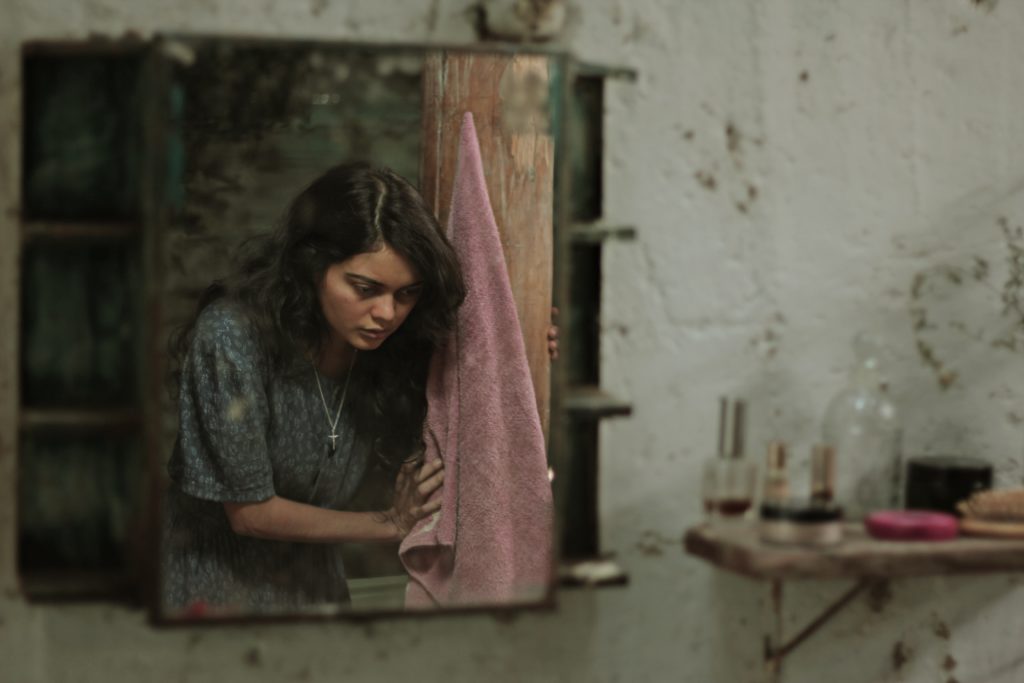Patricia Ortega is a director, screenwriter, and producer. She made her feature directorial debut with 2013’s “El Regreso.” “Being Impossible” is her second feature.
“Being Impossible” will premiere at the 2019 SXSW Film Festival on March 9.
W&H: Describe the film for us in your own words.
PO: “Being Impossible” is an intimate and personal journey, as well as an opportunity to question gender as a social construction. Through the story of an intersex individual, we have the opportunity to reflect on our identity and its contradictions.
W&H: What drew you to this story?
PO: The inspiration for making this film was born of the strong changes that I was facing in my personal life. I was always the black sheep of the family—the girl who did not want to be a princess, the daughter who never had a “normal” job.
In the middle of my divorce, I discovered that I had been intoxicated by the social dogmas that crush femininity. I was in the middle of a personal storm. “Being Impossible” was born in the middle of that process, like a seed full of questions and uncertainty.
W&H: What do you want people to think about when they are leaving the theater?
PO: I want my film to leave reflections, questions, and windows open to other points of view and other ways of living. There is very little talk about intersexuality in everyday life as something natural, normal. Nor do we talk about the need to see beyond feminine and masculine ethics.
“Being Impossible” is an invitation for us to sit down to do this, from our own experience, because finally we have all been normalized.
W&H: What was the biggest challenge in making the film?
PO: The biggest challenge was to produce the movie in the middle of a severe economic crisis, with hyperinflation that was eating the budget like a ravenous piranha. It was really a race against time. We filmed amid street protests, a rising dollar, and closing borders—dealing with that scenario was the hardest thing. But we did it!
W&H: How did you get your film funded? Share some insights into how you got the film made.
PO: To finance our film, we did a co-production with the Colombian production company Antorcha Films. We also won first place in the Meeting of Producers of the Film Festival of Cartagena de Indias in 2015.
We obtained the production fund of the National Autonomous Center of Cinematography of Venezuela. Additionally, we won the Colombian minority co-production fund.
In the post-production we did crowdfunding on Indiegogo and we won the financial help from the Women’s International Film & Arts Festival.
W&H: What inspired you to become a filmmaker?
PO: When I look back, I cannot define the precise moment when I decided to do it. It flourished in me as something natural. I’ve been a movie lover since I was little. Movies were always my favorite hobby.
I studied journalism and my university studies became another type of more personal work. Behind the camera, I started intuitively to direct, and I could not stop.
I always think that writing and directing are like an addiction. I just cannot stop doing it — it’s part of my body and my identity.
Sometimes I earn money, and sometimes I lose it, but I always enjoy it.
W&H: What’s the best and worst advice you’ve received?
PO: Rocky Balboa gave me the best advice: “It does not matter how many hits you can give; the important thing is how many you can stand, how many you can receive.”
The worst was given to me by my mother: “A woman without a man is an incomplete woman.”
W&H: What advice do you have for other female directors?
PO: I would tell them what I say to myself every day: Be bigger than that label called “woman.” Do not let anyone define you, or limit you. Your vagina does not determine your life. Choose your own colors and your own way of looking. And get ready, because the global film industry does not like sheep that don’t stay in their lane.
W&H: Name your favorite woman-directed film and why.
PO: I love the cinema of Lucrecia Martel. She manages to weave thin psychological threads in her films. In “La Ciénaga” she immerses us in a complex and contradictory female universe. I love that she speaks from an uncomfortable angle with a poetic look.
W&H: It’s been a little over a year since the reckoning in Hollywood and the global film industry began. What differences have you noticed since the #MeToo and #TimesUp movements launched?
PO: The only difference I have noticed is present in the media world. The Internet and its web of social networks have served as a bridge to make visible in the virtual world discussions that were previously silenced.
However, in everyday life, everything is different. When I live my day to day life, I keep hitting the wall of patriarchy and heteronormativity. The virtual world and the real world are two opposite dimensions. While social networks support a battle for social transformation, in the real world things are still the same. How can we activate a change in physical reality, beyond Facebook, Instagram, or Twitter? That is the challenge.







